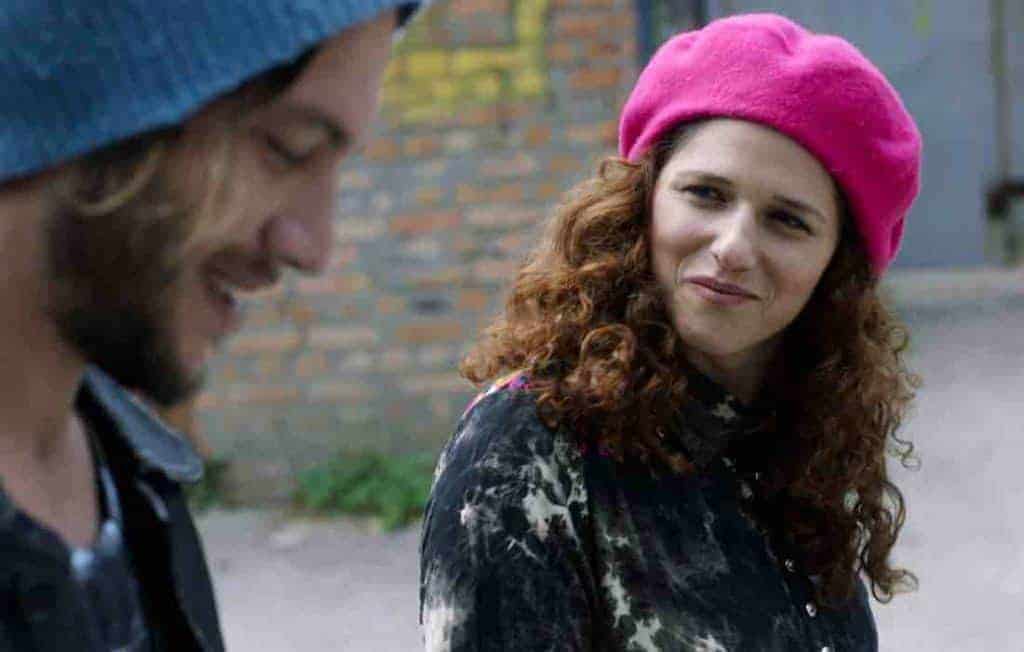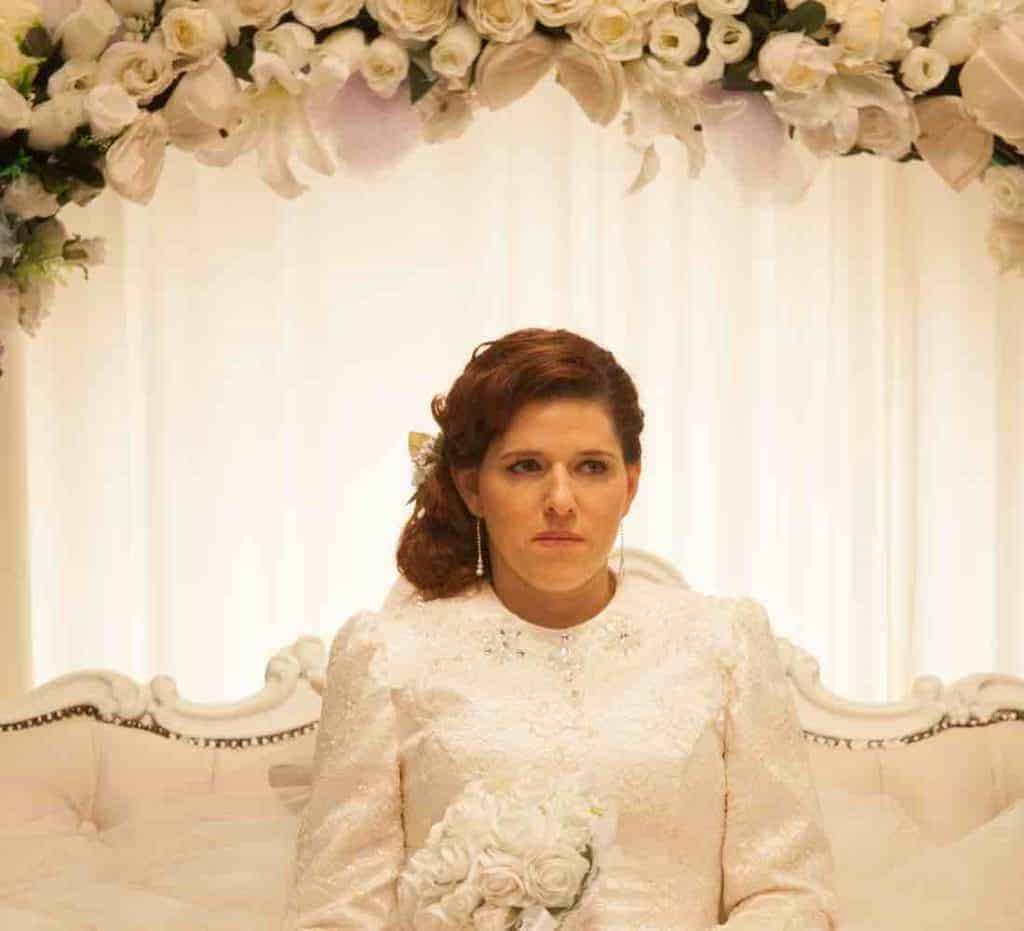Rama Burshtein’s The Wedding Plan, her follow-up to Fill the Void, is another thoughtful exploration of women and marriage in Orthodox Jewish culture.

In Israel — a country where divorce cases are presided over by Rabbinical courts, and proceedings can take years — marriage can’t be taken lightly. At the same time, there’s immense pressure on women, especially, to get married once they reach a certain age. It’s an essential part of being accepted in the community, a prerequisite for being allowed to entertain, to host Shabbat.
So it may be a surprise that the premise of Rama Burshtein’s unconventional romantic comedy, The Wedding Plan, is that Michal (Noa Koler), an Orthodox Jew in Jerusalem, plans to get married in 22 days — even though she doesn’t have a groom. She has a hall, invitations, and an apartment waiting. Yet neither Burshtein nor Michal take the decision to get married lightly. She has the wedding planned because she jilted her fiancé when she discovered he didn’t love her; he was willing to go through with it, but she wanted more. Every time a suitor agrees to get married on such short notice, she completely rebuffs him, convinced he must be crazy for acquiescing to such bizarre circumstances. Michal wants a soulmate, not just a placeholder.
Michal isn’t unwed for want of trying: she’s been dating consistently, with the help of matchmakers, for a decade. But she’s not content to marry just anyone. She’s also a bit unconventional, an entrepreneur who owns a mobile petting zoo, which makes it hard for her to pretend to be the kind of delicate, meek woman that her community tells her she should be. Perhaps even more limiting is the fact that she’s meeting with men who are also subject to a similar pressure cooker of roles and expectations. How are you supposed to react when a man who refuses to look at any woman until he marries her, proposes on your first date? And is it more confusing when you discover he proposes on every first date, as a matter of course.
Burshtein acknowledges these challenges, and toys with the idea that Michal might be happier with an unconventional match. Out of desperation, she agrees to go on a date with a deaf psychologist, whom she’d refused to meet a year ago. She thought it would be too complicated — how would they communicate? But they end up hitting it off, even though the necessity for an interpreter is a bit confusing and maybe a little awkward. He’s the first man we meet who thinks her work is exciting, who seems to be interested in getting to know her. When he asks her why only now did she agree to meet, and she responds honestly, we see him give a passionate answer in signs, but never get the translation as Burshtein jumps to the next scene and ahead in time.

The film is cut at odd angles, making it often disjointed and disoriented. The editing initially seems sloppy and carelessly paced, but Burshtein does somewhat have a method to her madness. The scene with the matchmaker is next to a scene where Michal is tasting food for a wedding with her fiancée with no other indicators of time passing, like a fade to black, an establishing shot with a change of seasons, an interlude, or a chyron. It’s particularly disorienting as we watch a montage of Michal’s different dates, each of which is cut off abruptly. They all seem to be interesting, and yet we can’t tell if any of them really spark. The way Burshtein has the story keep chugging along mimics the uncertainty felt in the whole business of dating and falling in love. If everyone is okay, even complex, but there’s no swelling music or montage to tell you that’s the one, how can you even know?
At one point in the film, Michal’s most eligible suitor seems to be a secular Israeli pop star, Yos (Oz Zehavi), whom she meets on a pilgrimage in the Ukraine. They talk openly about being honest and vulnerable. He’s impressed by her candour and self-assuredness. She’s flattered and baffled but also excited about meeting someone she can talk to so plainly, without the weight of the expectations she’s so used to regarding her performance of femininity. It’s telling that the question she asks all her dates is what they look for in a woman. They don’t ask her the equivalent one. Both Burshtein and Michal acknowledge that this charming, handsome celebrity may not work as a match because they don’t share the same religious affiliations and values. Orthodox men may not be progressive enough for Michal; Yos may not be devout enough for her.
The film’s pacing issues and its ambivalence about what makes a good match culminate in the final sequence at Michal’s wedding. She still hasn’t named a groom; everyone is staring at her with pity and anticipation; and it takes much too long for the film to deal with what the implications of this are. So much of Burshtein’s aesthetic is about giving us handheld closeups of Michal’s reactions, always favouring her words and responses over the men she interacts with. This is especially amplified at the end of the film when we more directly enter her woozy perspective and the film becomes surreal.
On her wedding day, Michal is fasting. She’s dizzy, delirious, and not quite herself. Burshtein places us in that headspace, effectively blocking out the surroundings to focus the camera almost entirely on Michal’s face, her confusion, her exasperation, and her hope. Is this an appropriate state in which to be making life-changing decisions? It’s worrying. On the other hand, it makes everything seem surreal. The greater question it allows Burshtein to pose is what state of mind does allow you to decide whom to spend your life with or when to make that decision? It’s a leap of faith. You can maybe rule out completely unsuitable candidates, like a man you know doesn’t love you, but will years of dating ensure you find The One? Michal hadn’t, so she set herself this absurd deadline. It’s not a wholly satisfying ending, but it raises important questions without forcing Michal into the kind of conventional narrative that the film has signaled to us wouldn’t fit her anyway.
Read more reviews of films now playing here.
Writer-director Chloé Robichaud talks Boundaries (Pays) and women in politics

